Who are we talking about? The Role of Person Identifiers in Scholarly Communications
Category
Published on
Abstract
Persistent unique identifiers have been a mainstay in scholarly communication for many years. It would be difficult to think of precisely describing a book without its ISBN or an article without its DOI. Until recently, identifiers most commonly referred to the activities or outcomes of research, rather than the people contributing to this work. The ORCID Registry was established in late 2012 to provide persistent, unique identifiers for researchers and scholars. These ORCID identifiers are included in publications, grants, research outcomes and academic service to uniquely connect a person to their work. The registry also provides a person-centric point of view, that complements the many activity-centric point of views provided by existing registries and databases. This session will explain the role of ORCID person identifiers in scholarly communications, and impact that they have in understanding contribution. The session will also describe how ORCID iDs have recently been integrated into the HubZero platform, and how they can be used in your own sites.
Bio
Laura Paglione has served as Technical Director of ORCID since June 2012, and led the ORCID Registry public launch in October of the same year. Her responsibilities include technical direction of new features and improvements to the Registry and its API, ORCID’s open source code and community, technical infrastructure, and member and end-user support. She engages with the ORCID community through a Technical Steering Group, and several technical working groups that provide recommendations on strategic and tactical plans. She also leads several webinars each year on topics such as use of the ORCID API, ORCID iDs in the publishing workflow, and the common integrations for ORCID iDs. Laura is a frequent speaker about ORCID, unique identifiers, and innovation.
Cite this work
Researchers should cite this work as follows:
Tags
-
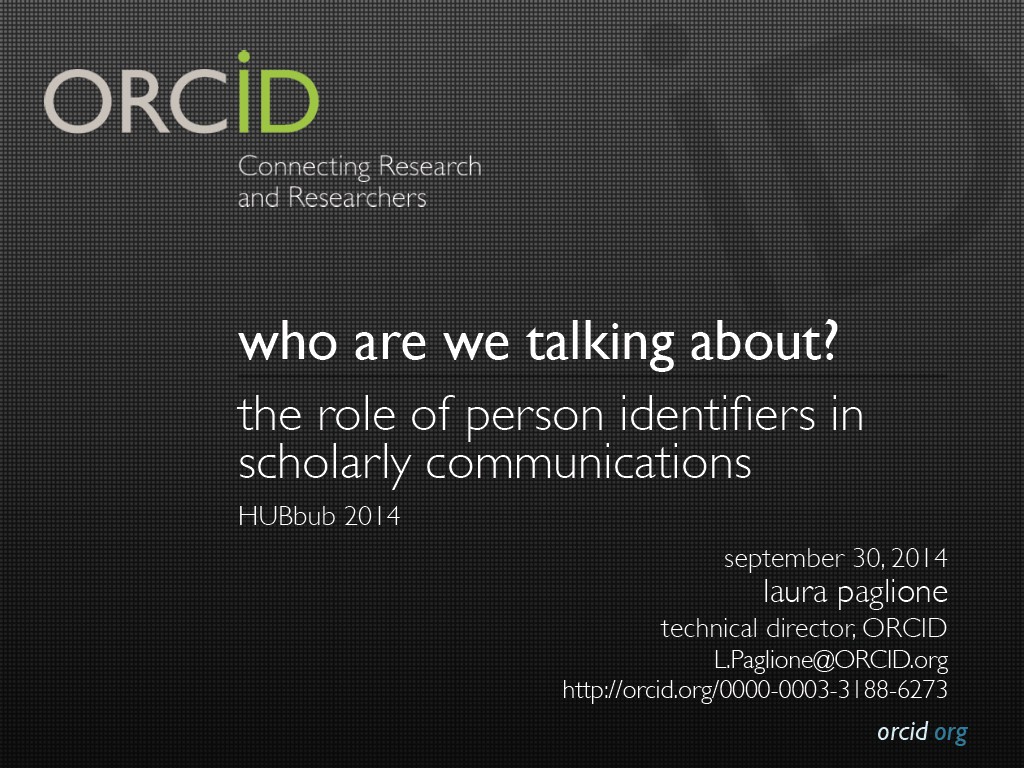 1. who are we talking about?
0
00:00/00:00
1. who are we talking about?
0
00:00/00:00 -
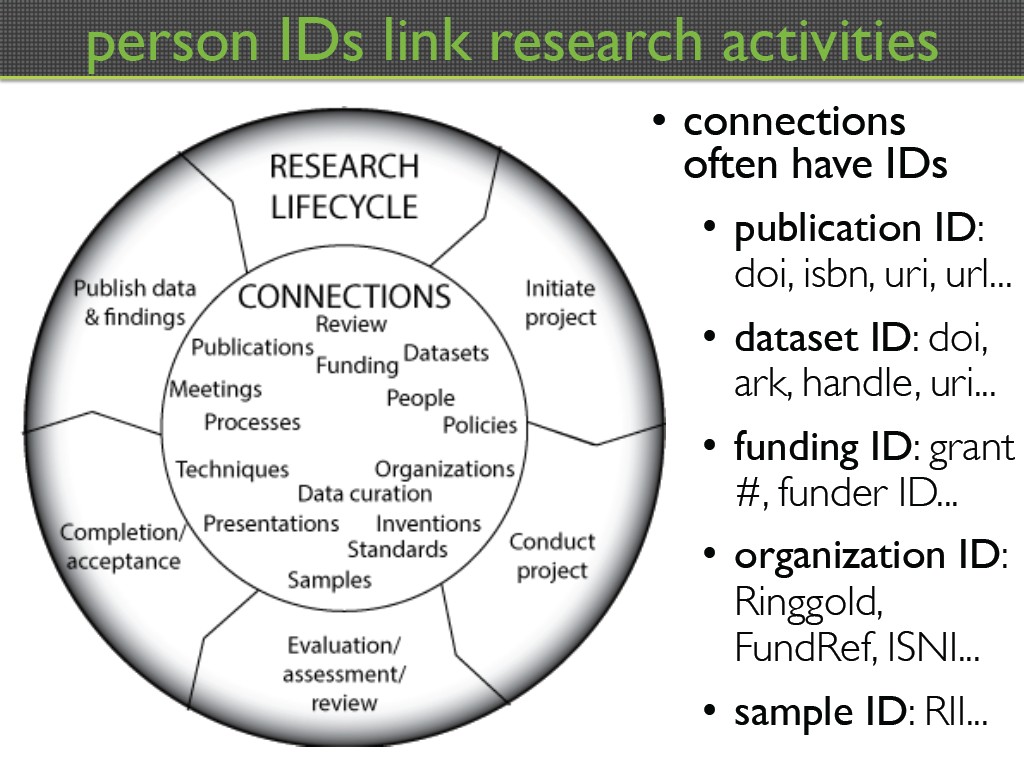 2. person IDs link research activ…
100.93426760093428
00:00/00:00
2. person IDs link research activ…
100.93426760093428
00:00/00:00 -
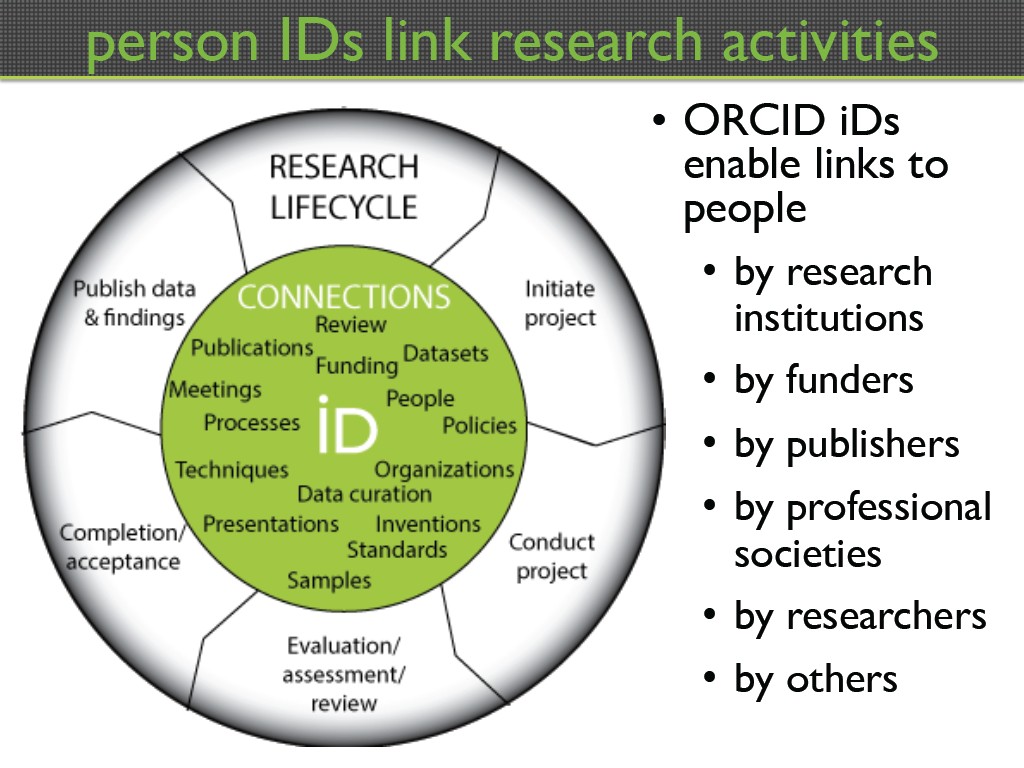 3. person IDs link research activ…
274.60794127460792
00:00/00:00
3. person IDs link research activ…
274.60794127460792
00:00/00:00 -
 4. does your name stand out in th…
314.88154821488155
00:00/00:00
4. does your name stand out in th…
314.88154821488155
00:00/00:00 -
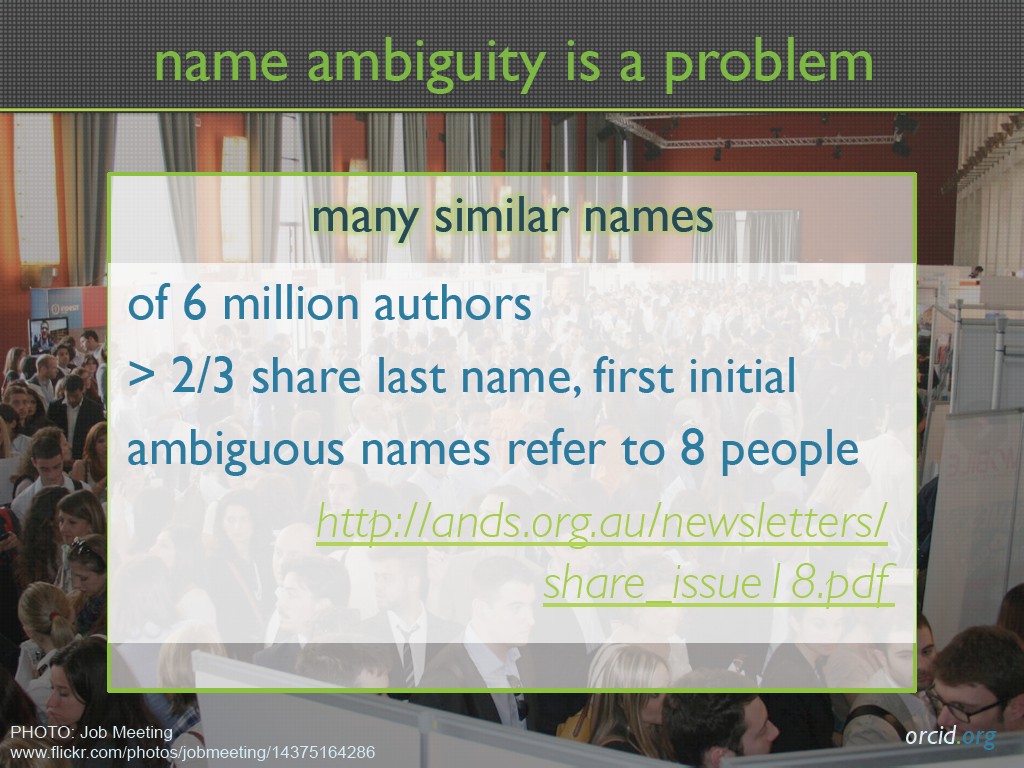 5. name ambiguity is a problem
352.61928595261929
00:00/00:00
5. name ambiguity is a problem
352.61928595261929
00:00/00:00 -
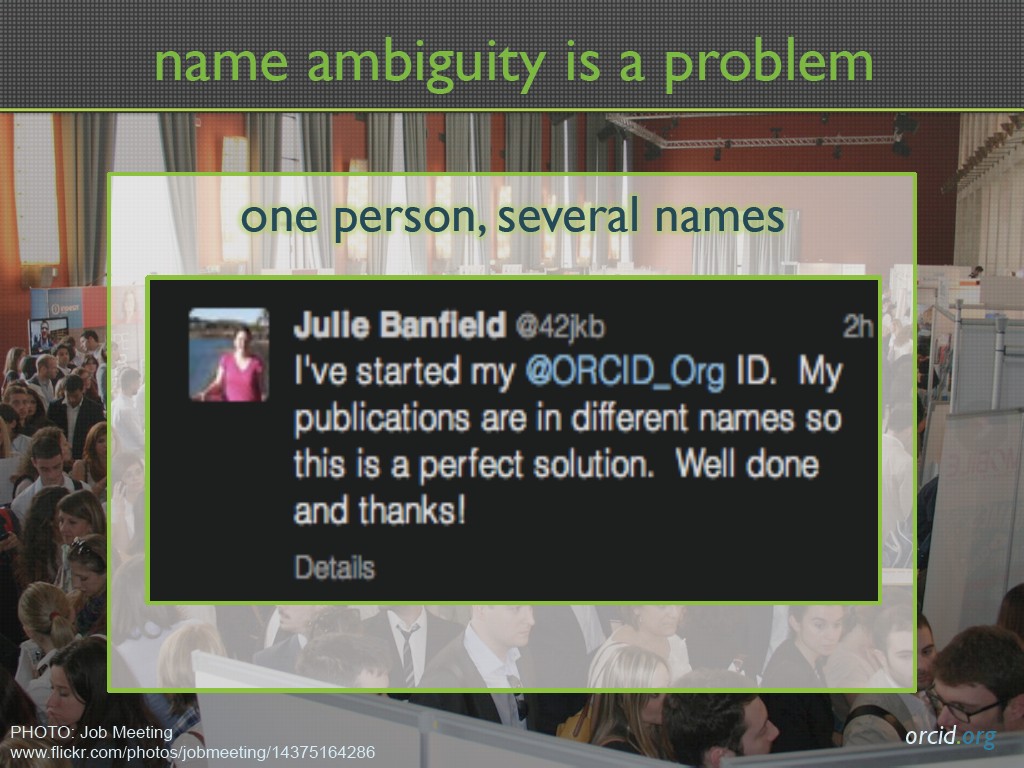 6. name ambiguity is a problem
391.19119119119119
00:00/00:00
6. name ambiguity is a problem
391.19119119119119
00:00/00:00 -
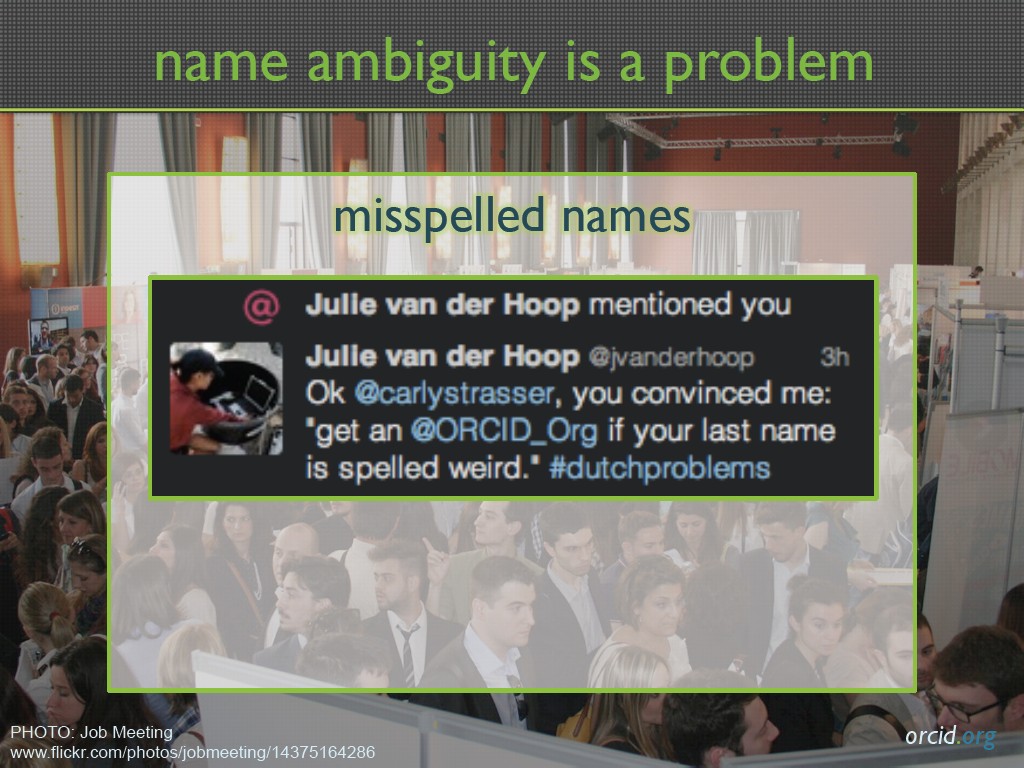 7. name ambiguity is a problem
415.44878211544881
00:00/00:00
7. name ambiguity is a problem
415.44878211544881
00:00/00:00 -
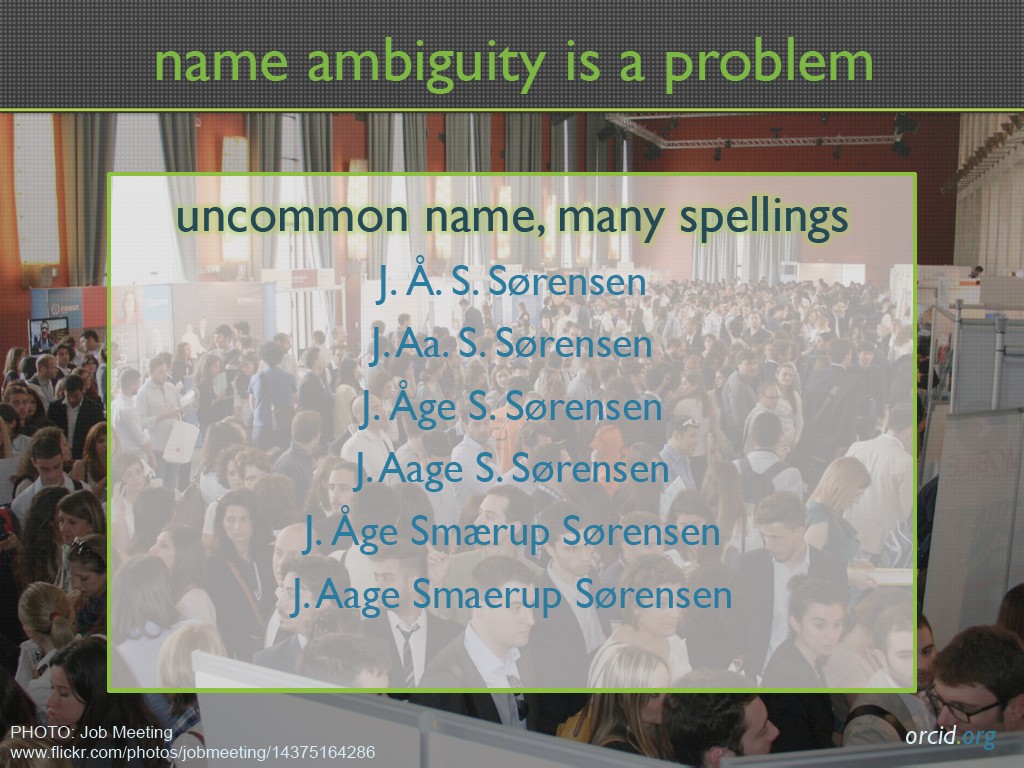 8. name ambiguity is a problem
433.23323323323325
00:00/00:00
8. name ambiguity is a problem
433.23323323323325
00:00/00:00 -
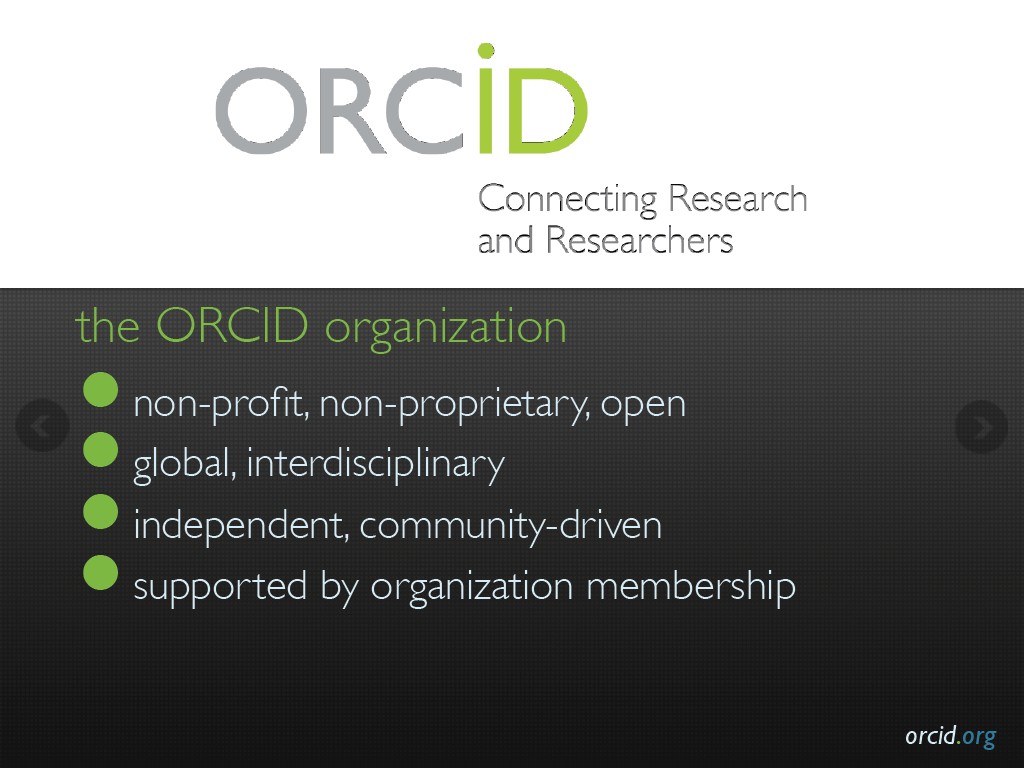 9. the ORCID organization
465.93259926593259
00:00/00:00
9. the ORCID organization
465.93259926593259
00:00/00:00 -
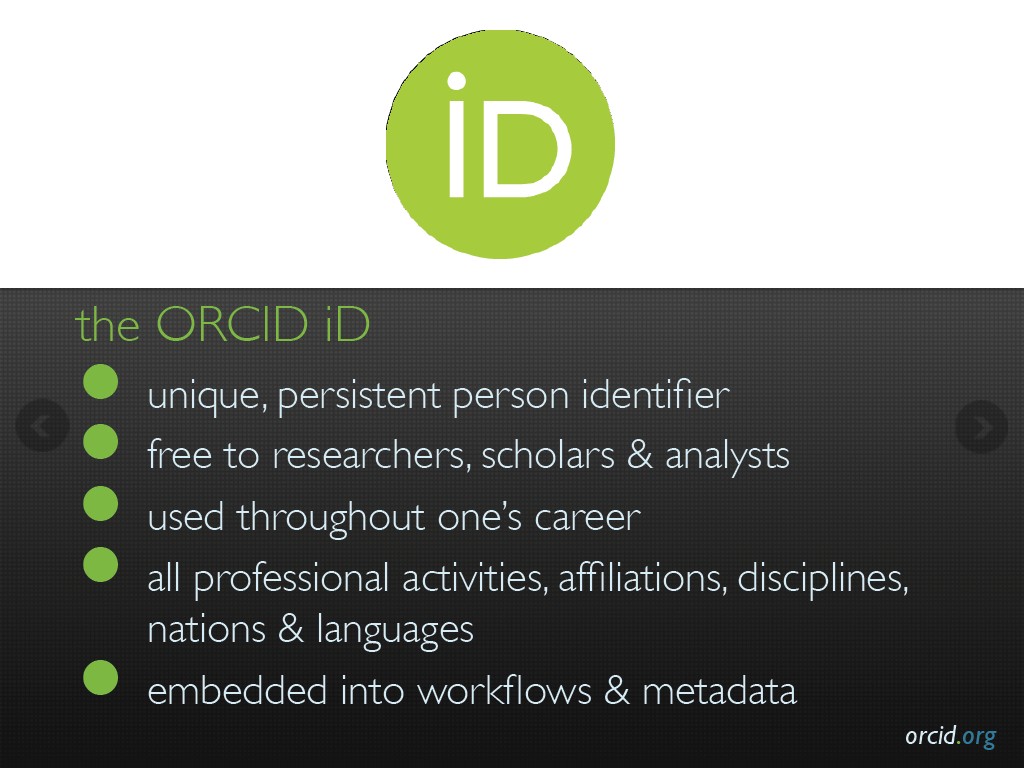 10. the ORCID iD
581.48148148148152
00:00/00:00
10. the ORCID iD
581.48148148148152
00:00/00:00 -
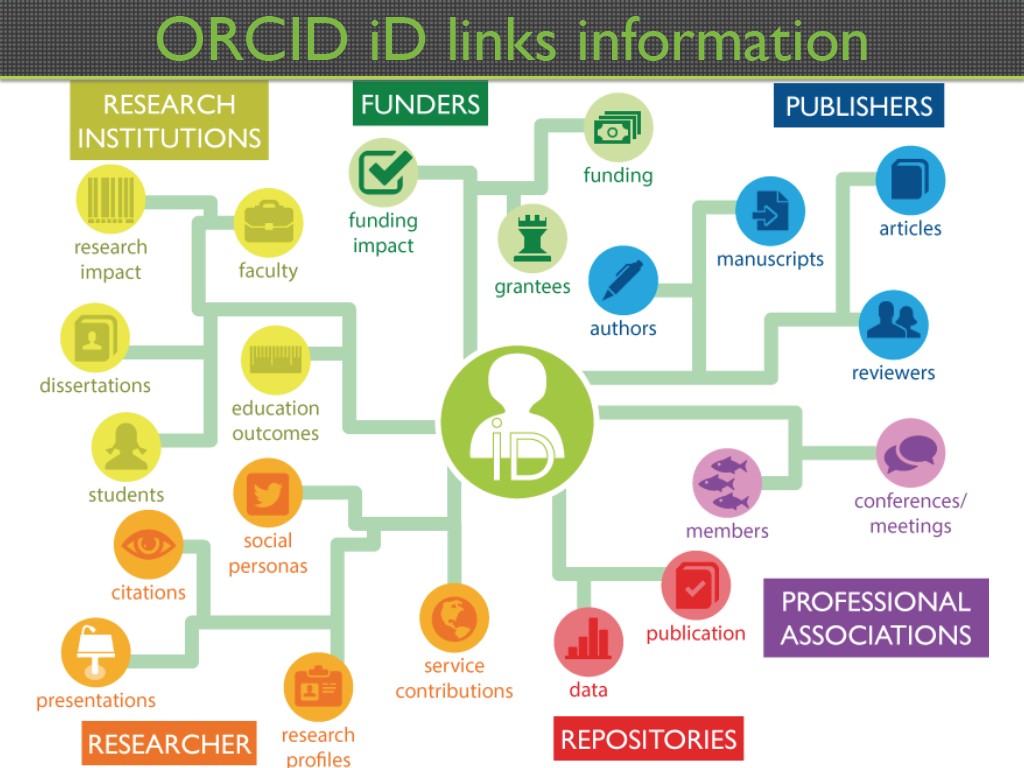 11. ORCID iD links information
644.944944944945
00:00/00:00
11. ORCID iD links information
644.944944944945
00:00/00:00 -
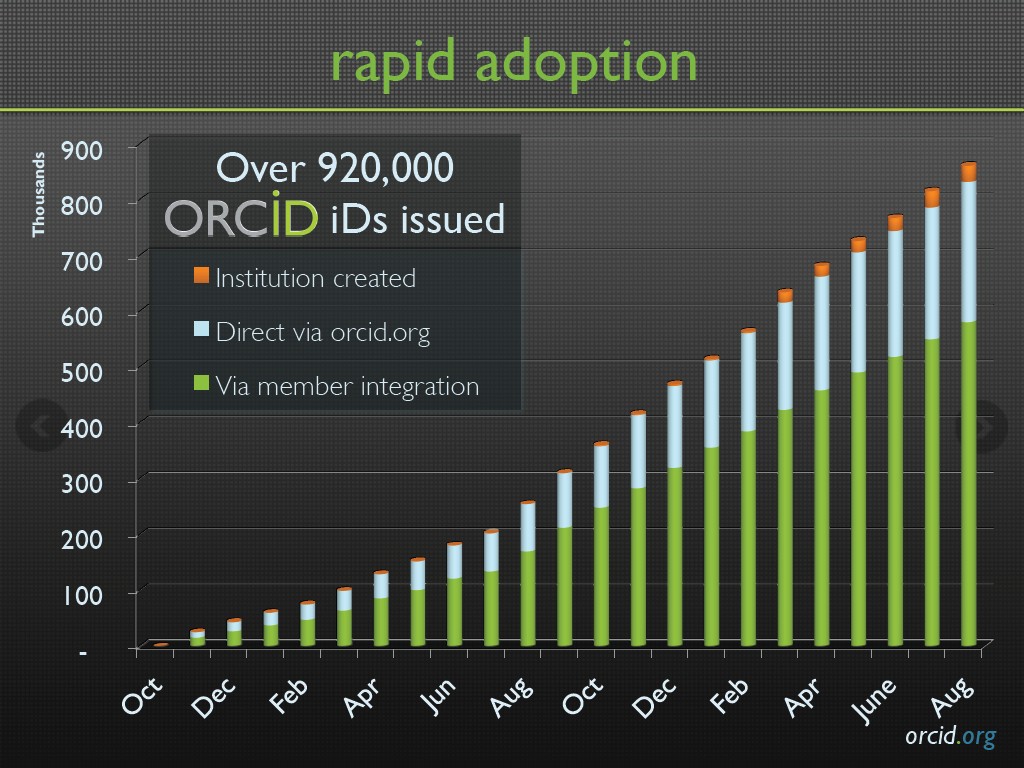 12. rapid adoption
758.92559225892558
00:00/00:00
12. rapid adoption
758.92559225892558
00:00/00:00 -
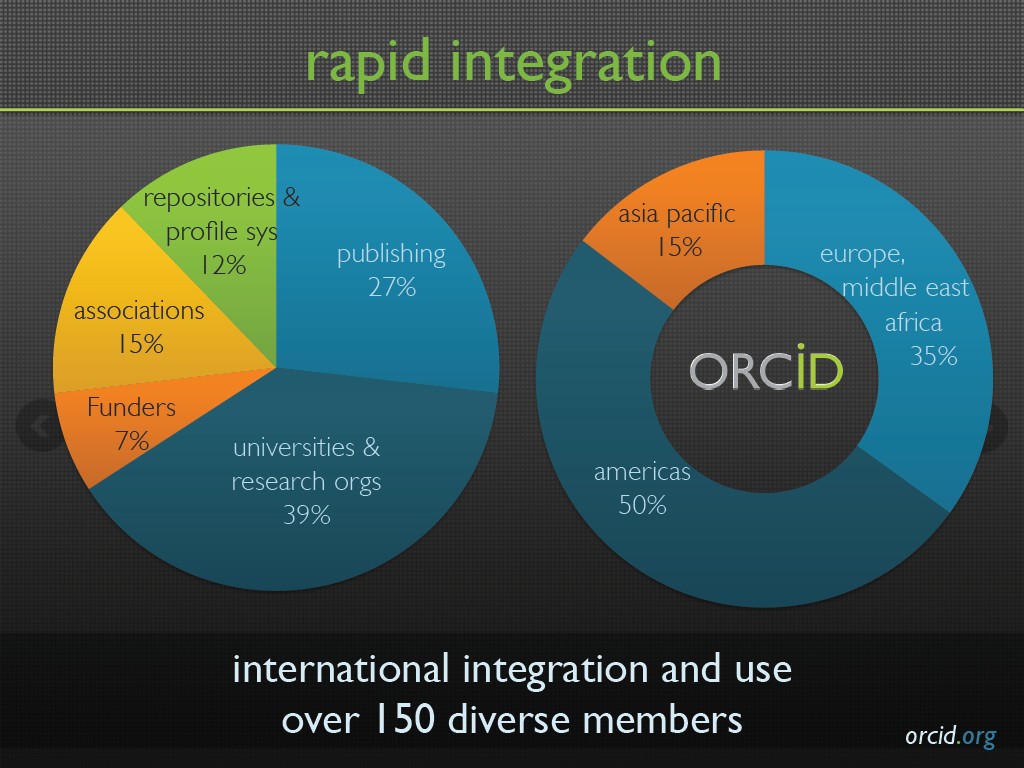 13. rapid integration
888.355021688355
00:00/00:00
13. rapid integration
888.355021688355
00:00/00:00 -
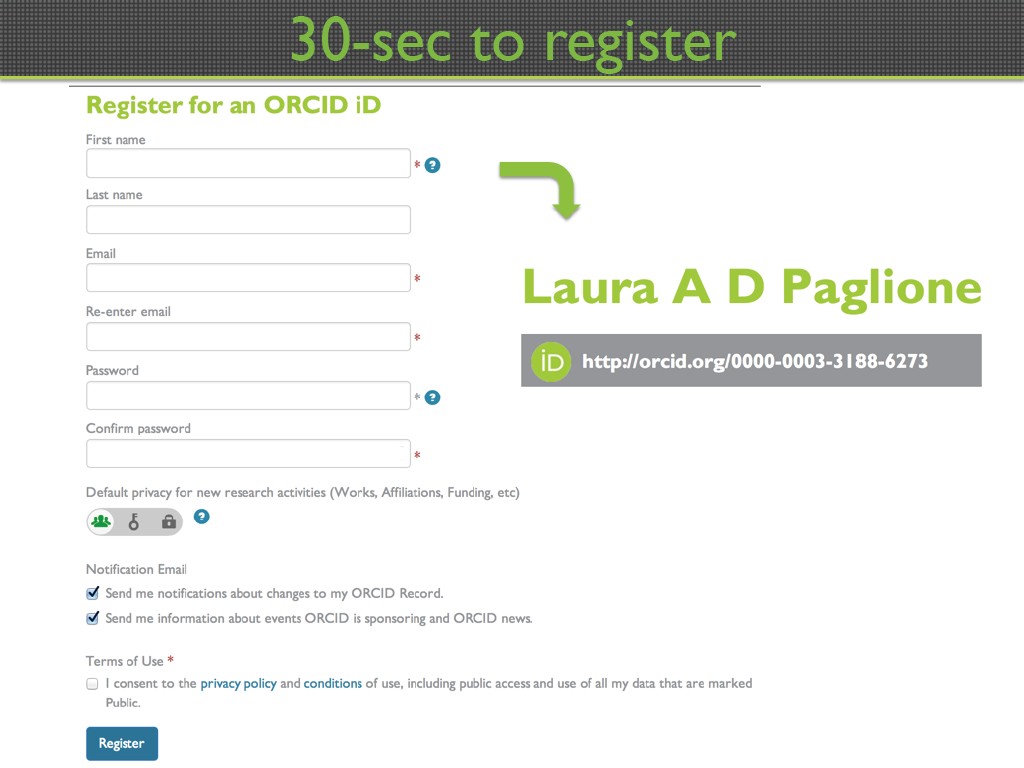 14. 30-sec to register
941.4748081414748
00:00/00:00
14. 30-sec to register
941.4748081414748
00:00/00:00 -
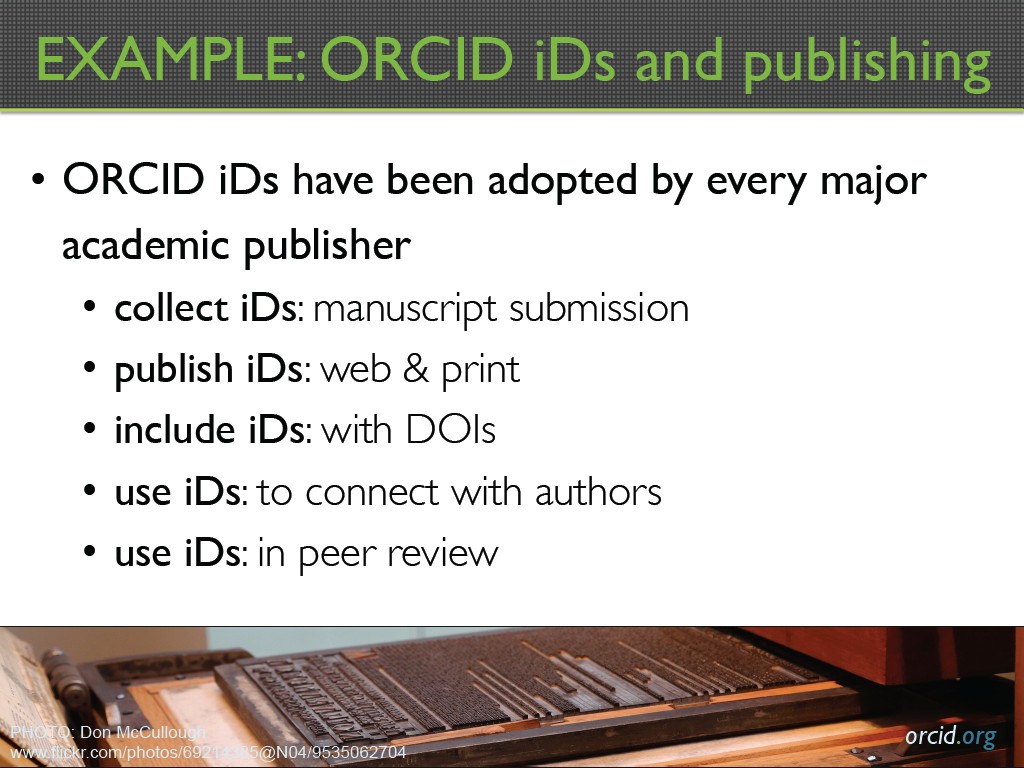 15. EXAMPLE: ORCID iDs and publish…
979.47947947947955
00:00/00:00
15. EXAMPLE: ORCID iDs and publish…
979.47947947947955
00:00/00:00 -
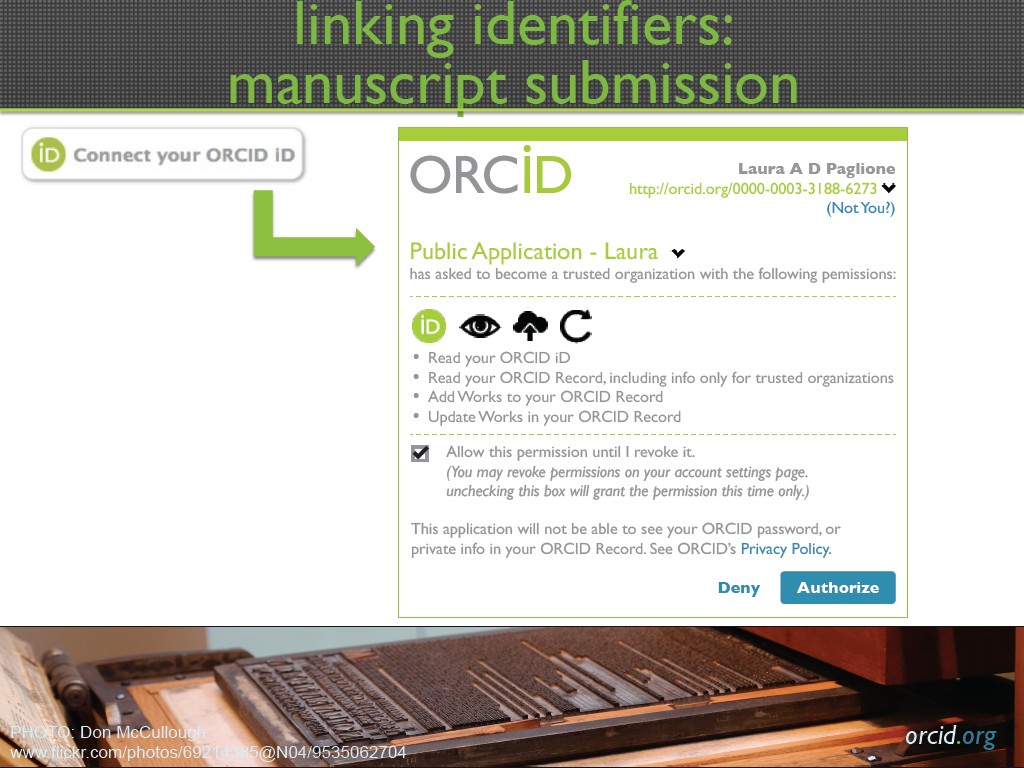 16. linking identifiers: manuscrip…
1021.0877544210878
00:00/00:00
16. linking identifiers: manuscrip…
1021.0877544210878
00:00/00:00 -
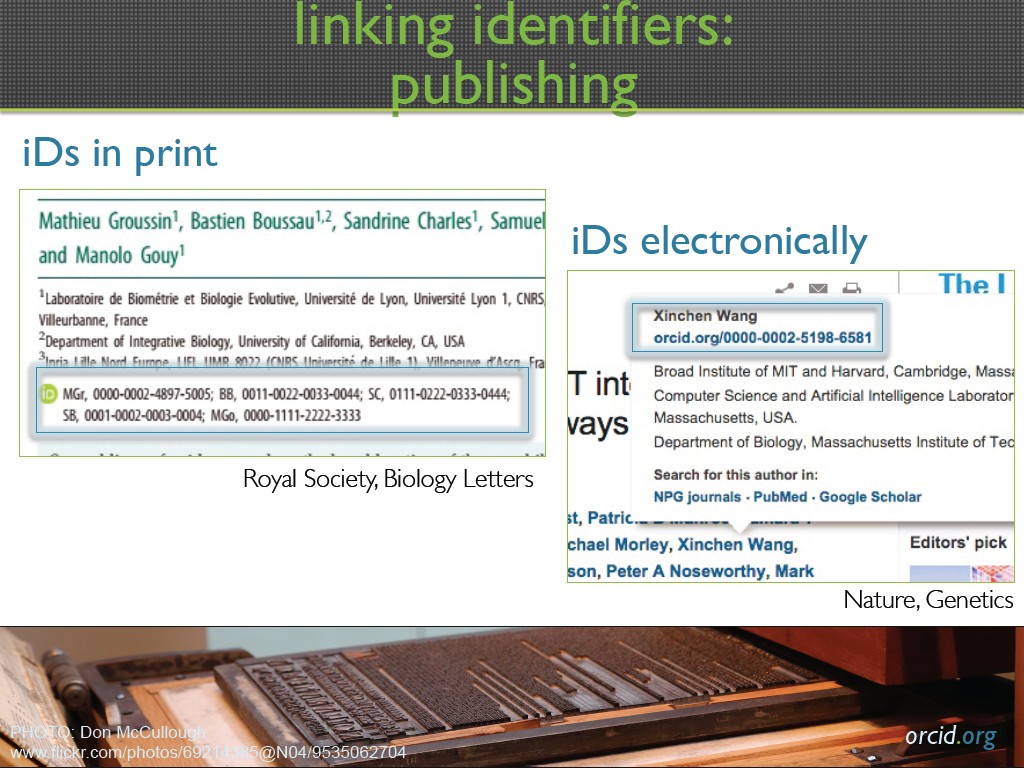 17. linking identifiers: publishin…
1060.8942275608943
00:00/00:00
17. linking identifiers: publishin…
1060.8942275608943
00:00/00:00 -
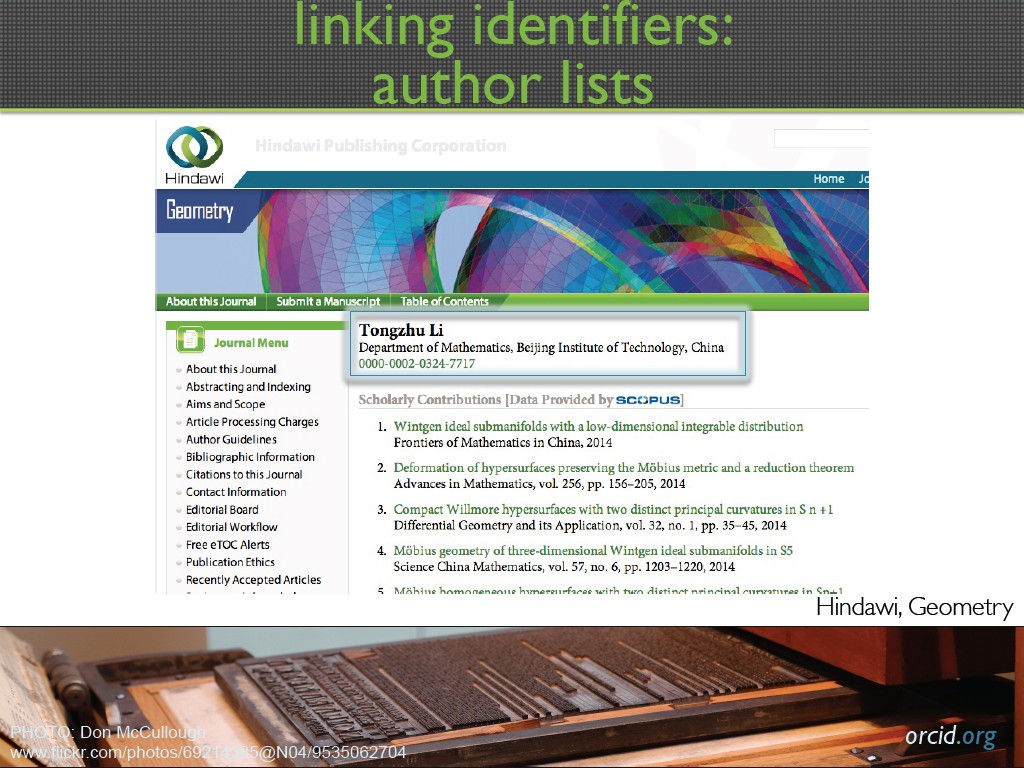 18. linking identifiers: author li…
1096.3296629963297
00:00/00:00
18. linking identifiers: author li…
1096.3296629963297
00:00/00:00 -
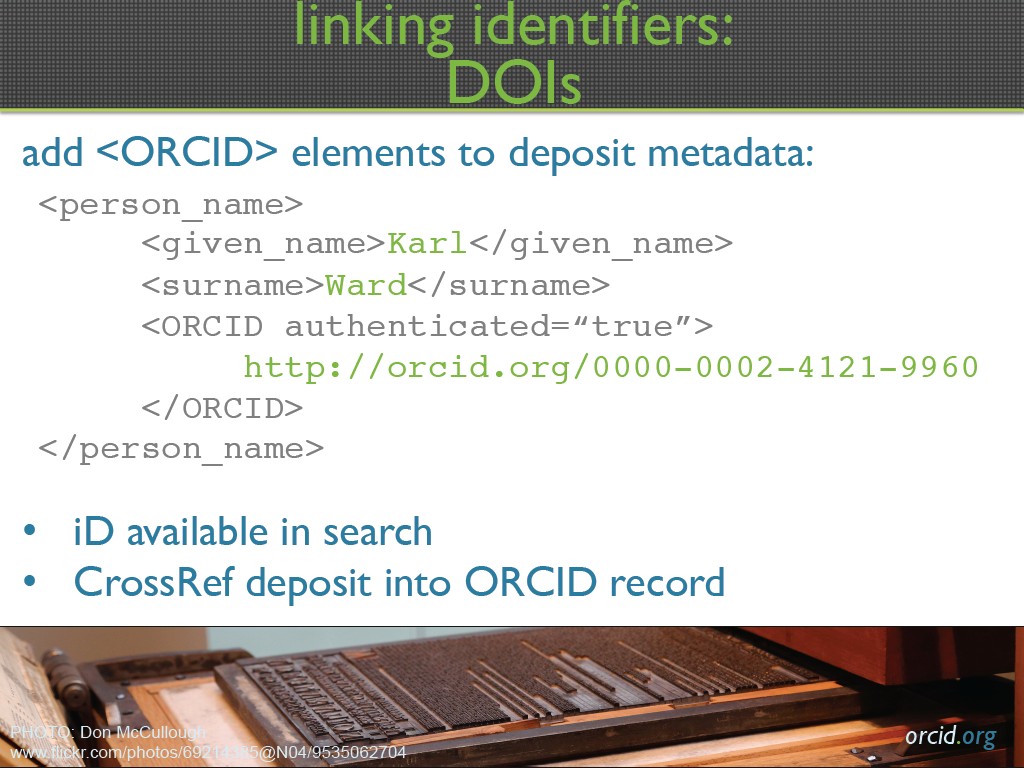 19. linking identifiers: DOIs
1106.3396730063398
00:00/00:00
19. linking identifiers: DOIs
1106.3396730063398
00:00/00:00 -
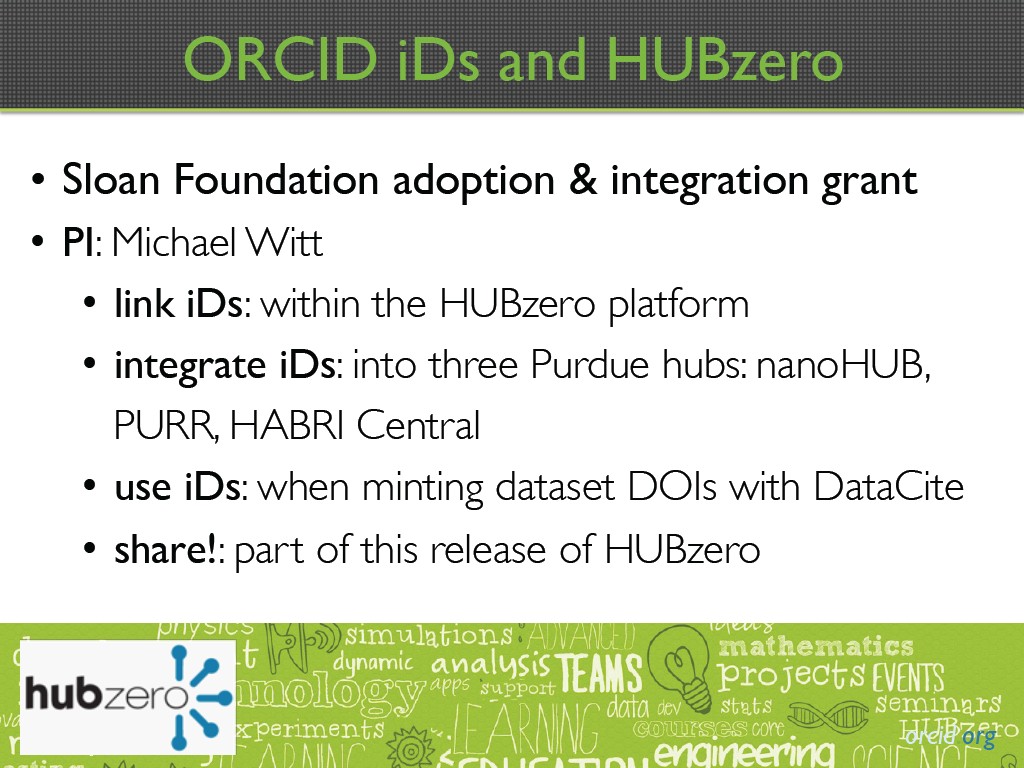 20. ORCID iDs and HUBzero
1143.3433433433434
00:00/00:00
20. ORCID iDs and HUBzero
1143.3433433433434
00:00/00:00 -
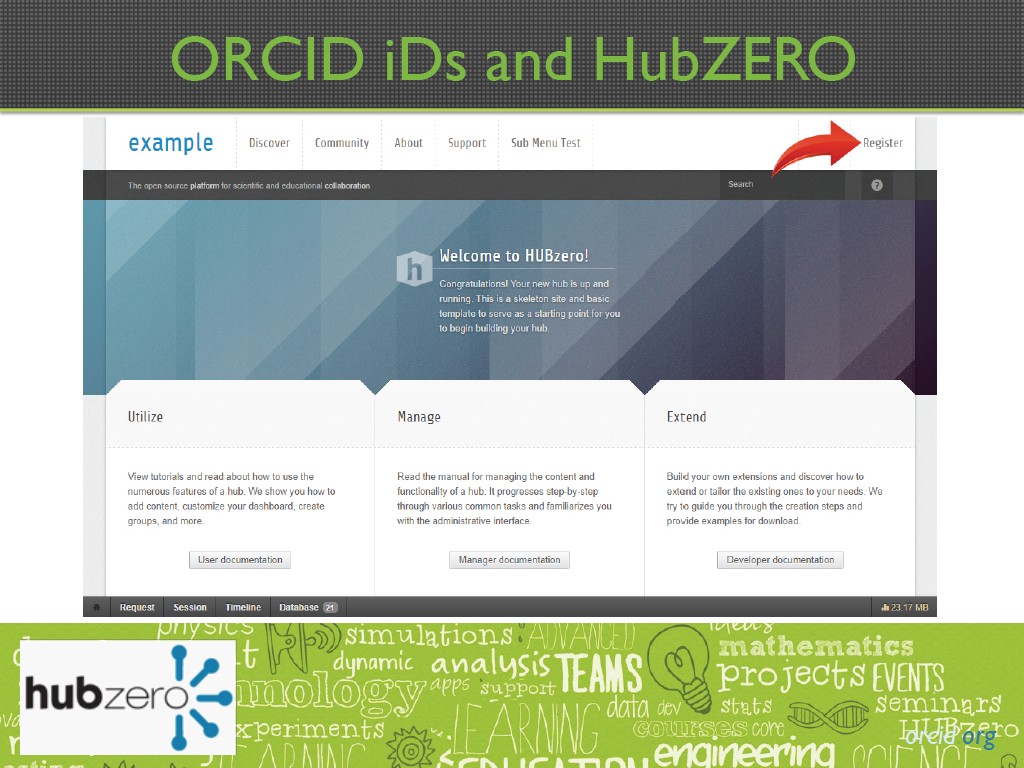 21. ORCID iDs and HubZERO
1222.4557891224558
00:00/00:00
21. ORCID iDs and HubZERO
1222.4557891224558
00:00/00:00 -
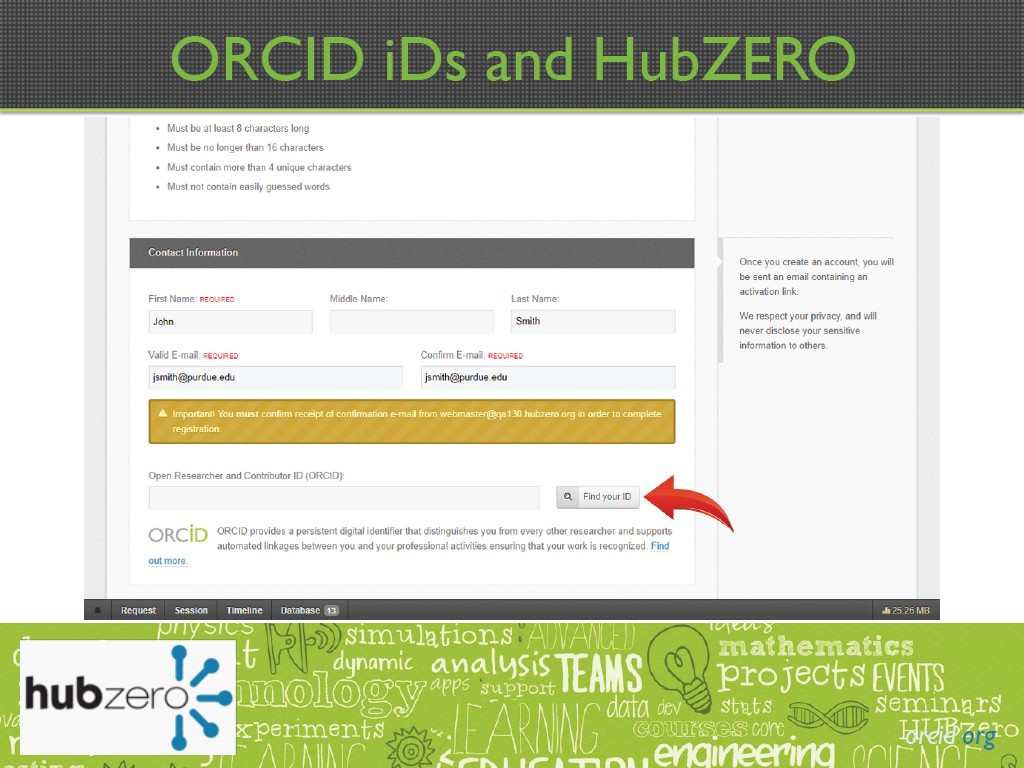 22. ORCID iDs and HubZERO
1257.8912245578913
00:00/00:00
22. ORCID iDs and HubZERO
1257.8912245578913
00:00/00:00 -
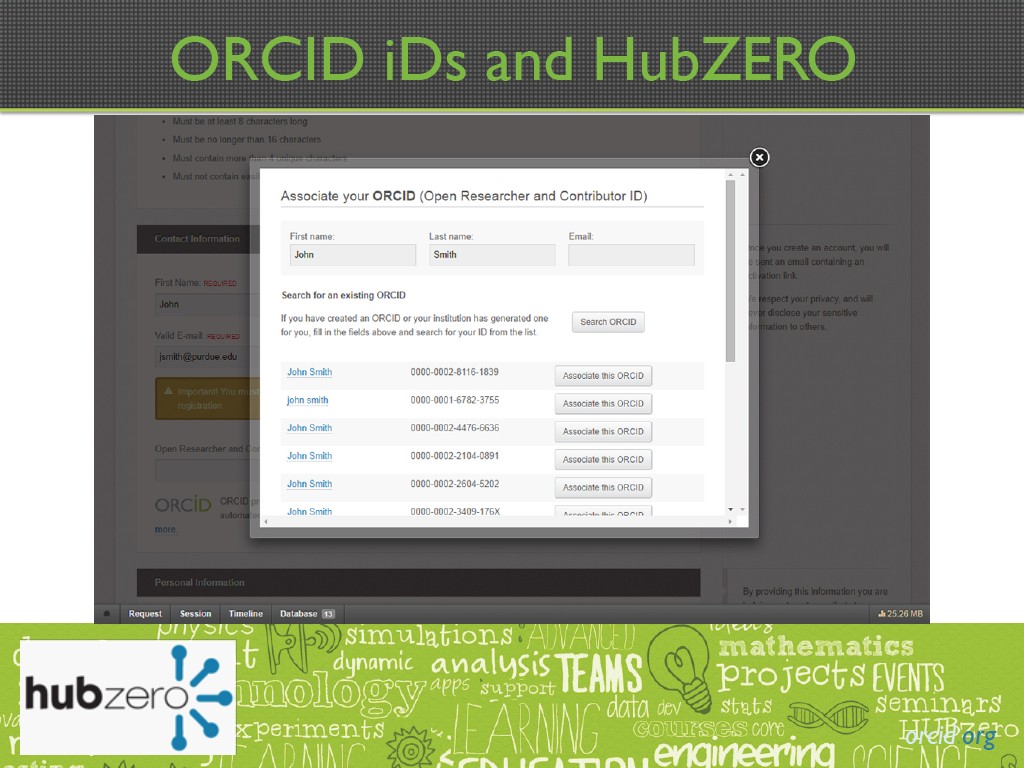 23. ORCID iDs and HubZERO
1282.082082082082
00:00/00:00
23. ORCID iDs and HubZERO
1282.082082082082
00:00/00:00 -
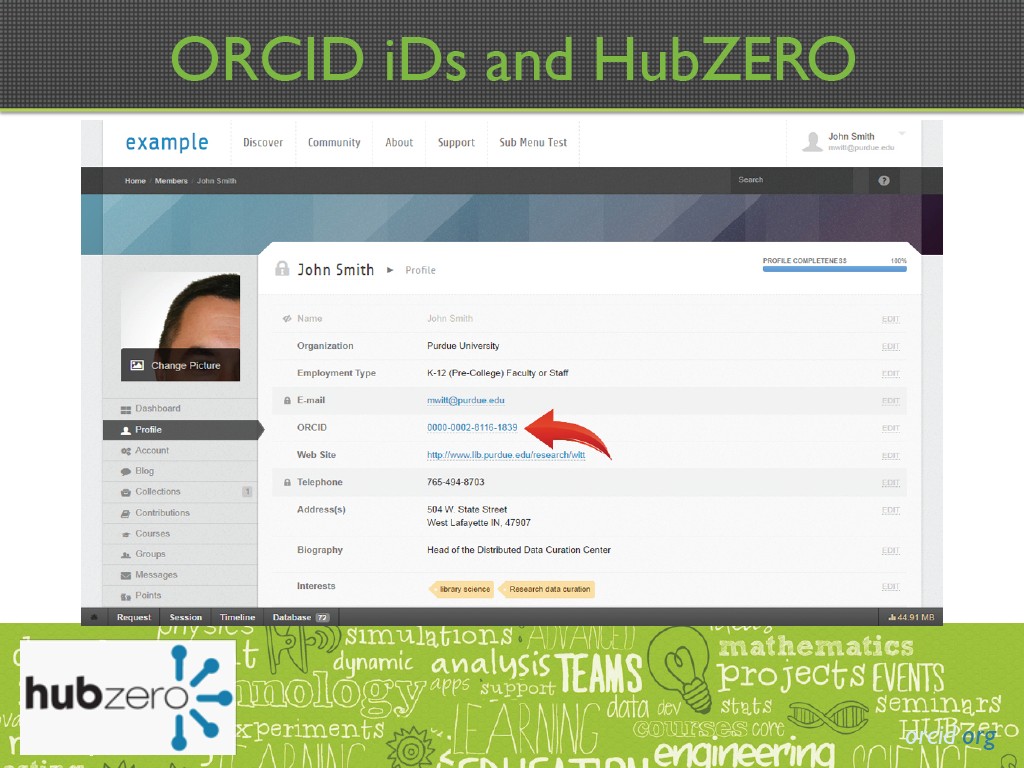 24. ORCID iDs and HubZERO
1326.9269269269271
00:00/00:00
24. ORCID iDs and HubZERO
1326.9269269269271
00:00/00:00 -
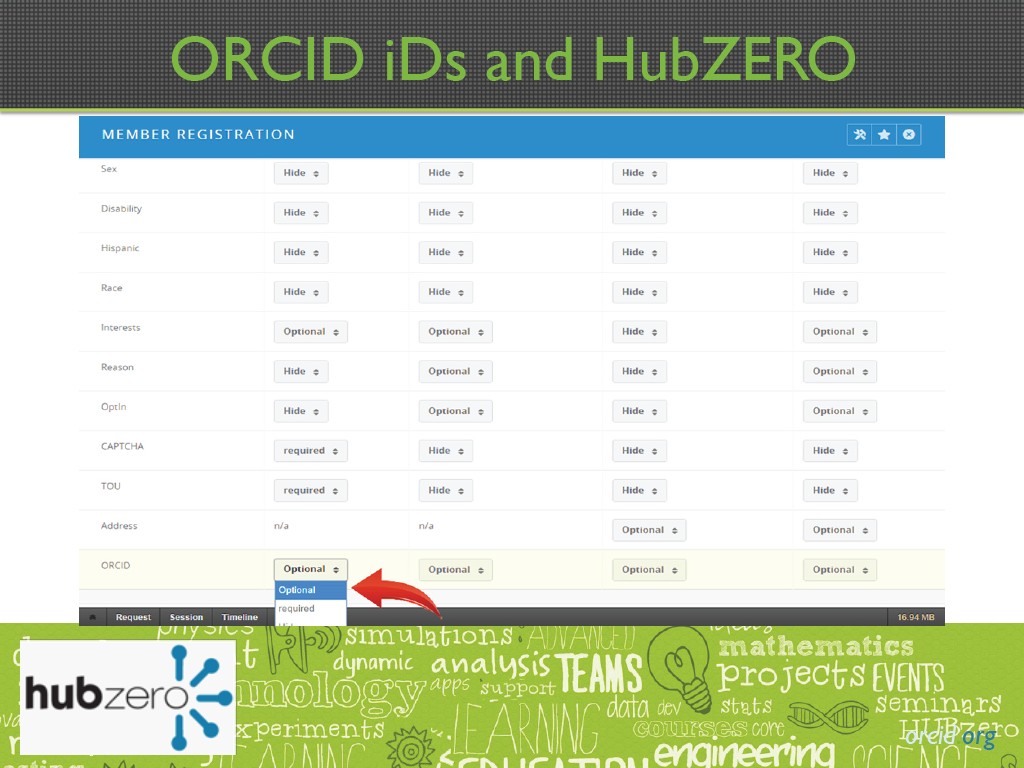 25. ORCID iDs and HubZERO
1358.5585585585586
00:00/00:00
25. ORCID iDs and HubZERO
1358.5585585585586
00:00/00:00 -
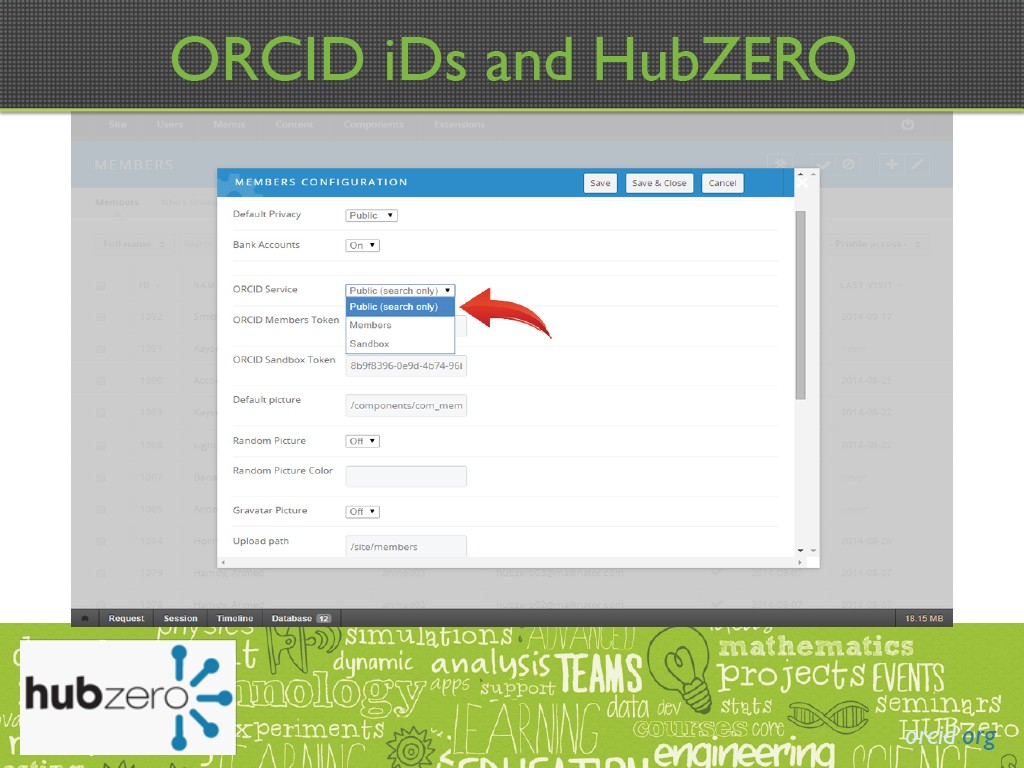 26. ORCID iDs and HubZERO
1385.2185518852186
00:00/00:00
26. ORCID iDs and HubZERO
1385.2185518852186
00:00/00:00 -
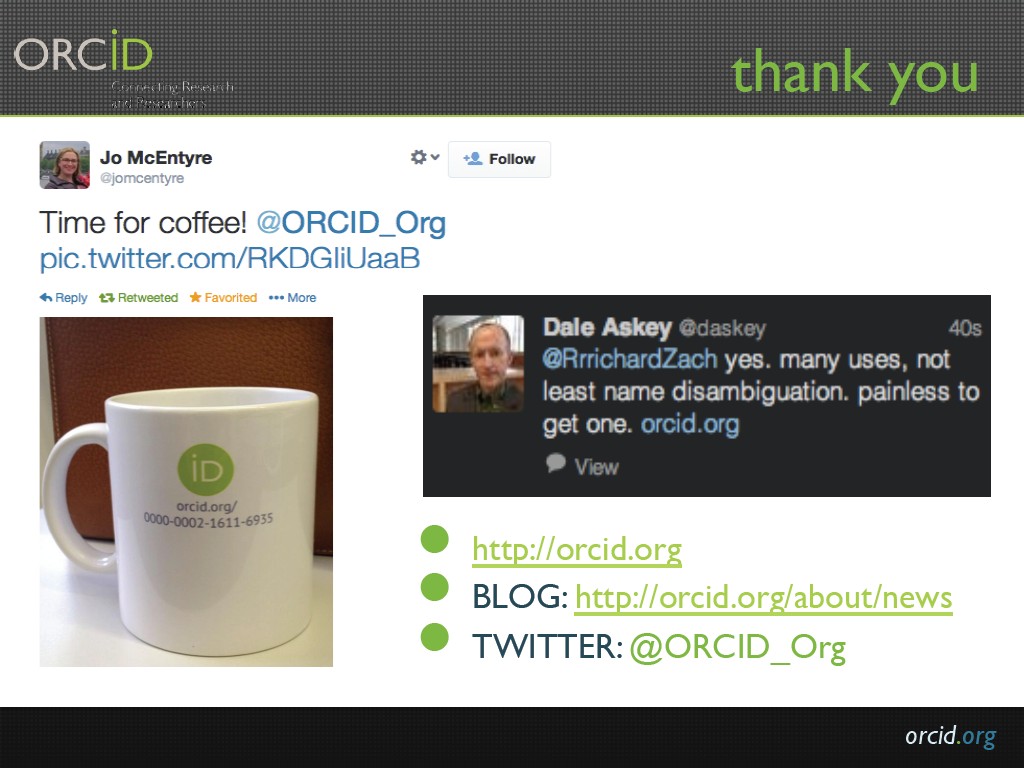 27. thank you
1427.3273273273273
00:00/00:00
27. thank you
1427.3273273273273
00:00/00:00